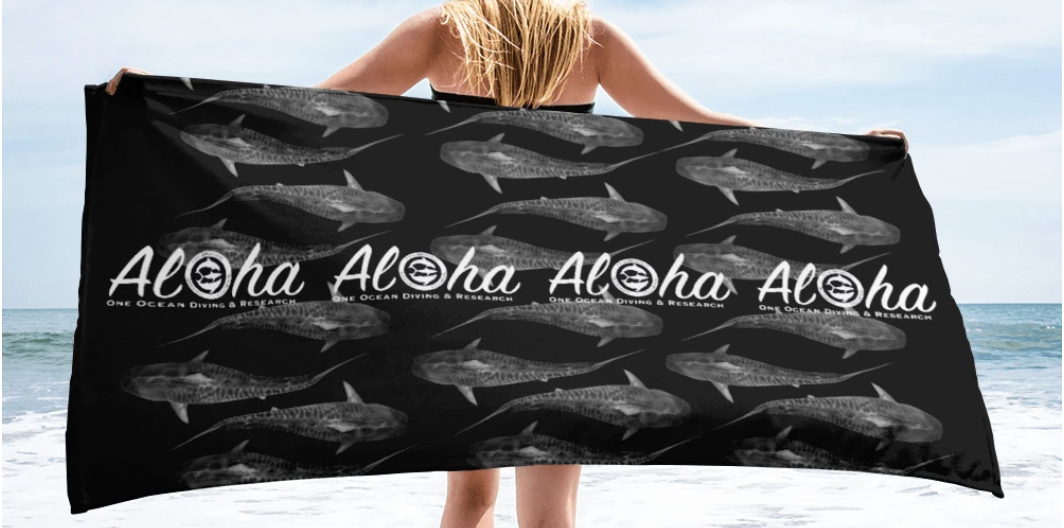If you're passionate about the ocean and dream of working in shark conservation, you might feel overwhelmed by the challenges of getting started. Concerns about job stability, where to live, and how to afford the journey can make this dream feel out of reach. But with careful planning and dedication, it's possible to turn your love for sharks and marine life into a fulfilling career, even if you're worried about money or where to settle.
In this blog, we’ll explore practical ways to break into the field of shark conservation, how to manage financial concerns, and some tips on where you might consider living to pursue this exciting and rewarding career.
Finding Your Path in Shark Conservation
Shark conservation encompasses a broad range of activities and roles. Whether you want to work as a marine biologist, dive professional, or conservation advocate, understanding where your interests lie is the first step. The good news is that there are multiple ways to contribute, and not all require a traditional academic or scientific background.
Here are a few potential paths you could take:
1. Scientific Research
If you’re interested in studying sharks directly, a career in marine biology or shark ecology may be the right path. These roles typically involve fieldwork, data collection, and research aimed at understanding shark behavior, migration patterns, and population health. You’ll likely need a degree in marine biology or a related field, but there are plenty of entry-level positions or internships where you can gain experience before committing to further education.
2. Shark Diving and Tourism
If diving with sharks sounds like your dream, becoming a divemaster or shark guide with companies like One Ocean Diving is a fantastic way to get hands-on experience while contributing to conservation. Shark diving operators often focus on eco-tourism and education, raising awareness about shark conservation through safe and respectful diving experiences. This is a more accessible route if you're already a certified diver or willing to invest in dive training.
3. Advocacy and Non-Profit Work
For those who love working with people and spreading awareness, a career in environmental advocacy or non-profit work may be your calling. Organizations dedicated to ocean conservation, like One Ocean Conservation , rely on passionate individuals to manage campaigns, organize events, and educate the public on shark conservation. These roles often involve community outreach, policy work, and digital advocacy.
4. Content Creation and Media
Another way to contribute to shark conservation is through content creation. Using photography, videography, writing, or social media, you can help shift public perceptions of sharks and inspire others to protect marine life. Many conservationists work as freelance content creators, documenting their experiences and sharing educational information about sharks to raise awareness and engage the public.
Addressing Financial Concerns
Starting a career in conservation can feel financially daunting, especially if you’re just beginning your journey. However, there are ways to manage costs and still pursue your passion for protecting sharks.
1. Scholarships and Grants
If you’re interested in furthering your education, there are many scholarships and grants available for students pursuing marine biology, environmental science, or conservation work. Research organizations, universities, and non-profits often offer financial assistance to those dedicated to shark conservation or marine ecology.
You can also apply for research grants or join programs like Fulbright or NOAA fellowships, which fund conservation research projects.
2. Volunteer Programs and Internships
Many shark conservation organizations offer volunteer opportunities or internships that can provide valuable experience without requiring a financial commitment. Some organizations even offer free room and board for volunteers. Internships are often a stepping stone to paid positions and a great way to build a professional network in the conservation world.
For example, One Ocean Diving has internship programs that offer hands-on experience with shark research and eco-tourism, giving you direct exposure to shark conservation efforts.
3. Crowdfunding and Community Support
If you’re pursuing a conservation project, starting a crowdfunding campaign is an effective way to raise money and build community support. Platforms like GoFundMe or Patreon allow you to share your passion and goals with potential donors, helping to fund your research, travel, or volunteer work.
Some conservationists also build a following through social media, where they can partner with eco-conscious brands or receive donations from people who support their cause.
4. Low-Cost Living
It’s understandable to worry about the cost of living when starting out in shark conservation. However, many coastal regions where shark conservation work takes place have affordable living options. Here are a few considerations:
Live Near Conservation Hotspots: Shark conservation work is often concentrated in coastal areas with rich marine biodiversity. Locations like Hawaii, the Bahamas, South Africa, and Australia are home to numerous conservation projects and eco-tourism ventures. Depending on the region, you might be able to find low-cost accommodation through shared housing or volunteer exchange programs.
Consider Working Abroad: Many countries where shark conservation is critical have lower costs of living than the U.S. or Europe. Places like the Philippines, Mexico, or Fiji offer relatively affordable housing, making it easier to live on a modest income while pursuing conservation work.
Temporary or Seasonal Work: To manage your finances, consider working part-time in related fields, such as dive instruction, eco-tourism, or marine guiding, while you pursue shark conservation as a long-term goal. This will allow you to live in areas where shark conservation is a focus and keep costs down.
Where to Live for Shark ConservationWhen considering where to live to start a career in shark conservation, think about areas with high shark populations, eco-tourism industries, or established conservation organizations. Here are a few locations to consider:
1. Hawaii
Home to One Ocean Diving, Hawaii is a perfect place to begin your career in shark conservation. Its vibrant marine ecosystems make it a key location for shark research and eco-tourism. Oahu, in particular, offers plenty of opportunities for diving, conservation, and research work.
2. South Africa
With its rich marine biodiversity and large populations of great white sharks, South Africa is another prime location for shark conservation. The country is known for its cage diving industry, marine research institutes, and conservation programs focused on sharks and marine ecosystems.
3. Australia
Australia is home to a variety of shark species, including whale sharks and great white sharks. Locations like the Great Barrier Reef and Ningaloo Reef are important conservation sites, where marine biologists, divers, and conservationists work to protect the health of marine ecosystems and shark populations.
4. The Bahamas
Known for its shark tourism industry, particularly with tiger sharks and hammerheads, the Bahamas is a popular destination for shark conservationists and divers. Many organizations work on shark research and protection in these warm, clear waters, making it an ideal location for those interested in both conservation and eco-tourism.
5. The Philippines
For those looking for affordable living and rich marine biodiversity, the Philippines is an excellent option. The country is home to several species of sharks, including the whale shark, and has various conservation initiatives focusing on sustainable eco-tourism and marine preservation.
Final Thoughts: Turning Your Passion Into a Career
Starting a career in shark conservation may seem financially challenging at first, but with determination and creativity, it’s possible to build a fulfilling career protecting the ocean’s most misunderstood creatures. By taking advantage of volunteer programs, gaining hands-on experience, and finding affordable living options, you can navigate the hurdles and make a real impact in the world of shark conservation.
If you’re passionate about sharks, don’t let financial concerns hold you back—there are always ways to make your dream a reality. By planning carefully, taking small steps, and building connections with like-minded individuals and organizations, you can turn your passion into a lifelong career dedicated to protecting the ocean.





